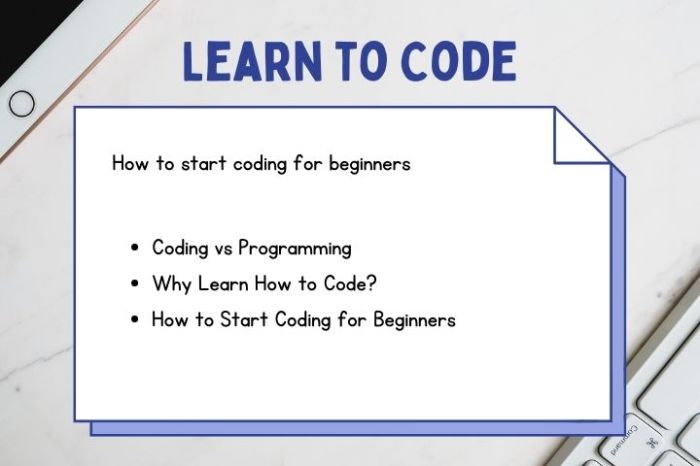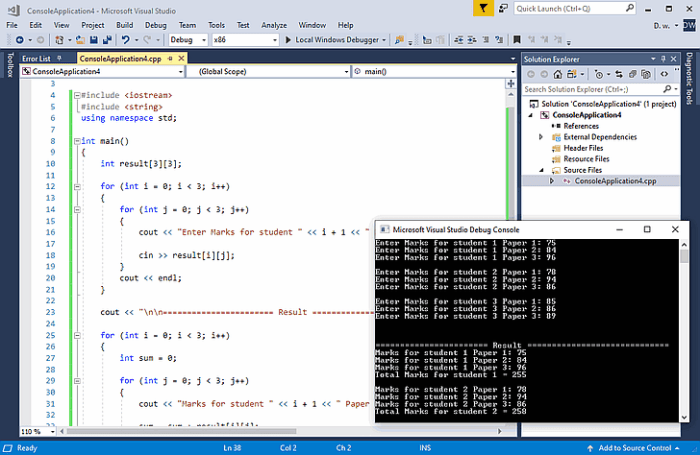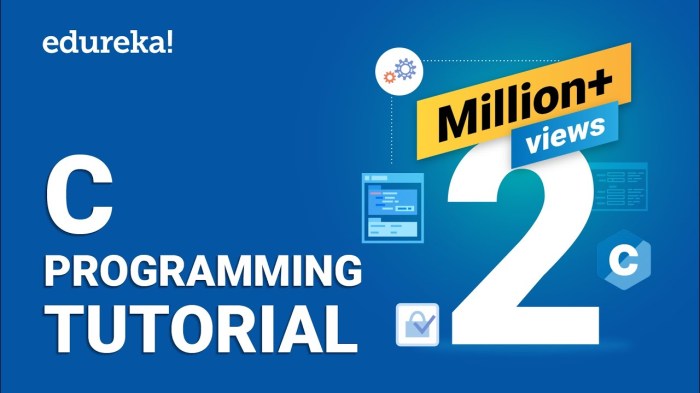
Embark on a thrilling journey into the world of coding with ‘How to learn coding for beginners,’ a guide that promises to demystify the complexities of programming in a fun and engaging manner.
Whether you’re a complete novice or looking to sharpen your skills, this guide will equip you with the knowledge and resources needed to kickstart your coding journey with confidence.
Introduction to Coding
Learning coding is becoming increasingly important for beginners in today’s digital age. Coding skills are not only valuable for those pursuing careers in technology but are also beneficial for individuals looking to enhance problem-solving abilities and logical thinking. Understanding the basic concepts of coding opens up a world of opportunities in various industries and fields.
Basic Concepts of Coding
- Variables: These are used to store data and can be manipulated throughout the code.
- Loops: Allow for the repetition of a certain block of code until a condition is met.
- Conditional Statements: These help in making decisions within the code based on certain conditions.
- Functions: Allow for the organization of code into reusable blocks for better efficiency.
Benefits of Coding Skills
- Enhanced Problem-Solving: Coding teaches individuals to break down complex problems into smaller, manageable parts.
- Career Opportunities: With the increasing demand for tech-savvy professionals, coding skills open up a wide range of career options.
- Creativity and Innovation: Coding allows individuals to bring their ideas to life through the development of apps, websites, and software.
- Improved Logical Thinking: Coding requires individuals to think logically and analytically, improving cognitive abilities.
Getting Started

When starting your coding journey as a beginner, it’s essential to choose the right programming language to learn and utilize the available resources effectively. Here are some tips to help you get started:
Different Programming Languages Suitable for Beginners
- Python: Known for its readability and simplicity, Python is an excellent choice for beginners.
- JavaScript: Widely used for web development, JavaScript is beginner-friendly and versatile.
- Java: A popular language with a strong community and extensive resources for beginners.
- C#: Ideal for those interested in game development or Windows applications.
- Ruby: Known for its elegant syntax and beginner-friendly environment.
Tips on Choosing the First Programming Language to Learn
- Consider your goals: Choose a language that aligns with your career aspirations or interests.
- Research job market demand: Look into which languages are in high demand in the industry you’re interested in.
- Start with the basics: Opt for a language that provides a solid foundation in programming concepts.
- Explore resources: Take advantage of online courses, tutorials, and books to learn the language effectively.
Resources for Beginners
- Online courses: Platforms like Coursera, Udemy, and Codecademy offer beginner-friendly courses in various programming languages.
- Tutorials: Websites like W3Schools, Mozilla Developer Network, and freeCodeCamp provide tutorials for beginners to learn coding.
- Books: Books like “Python Crash Course” by Eric Matthes, “Eloquent JavaScript” by Marijn Haverbeke, and “Java: A Beginner’s Guide” by Herbert Schildt are great resources for beginners.
Basic Concepts

Coding involves understanding fundamental concepts that serve as building blocks for programming. Let’s delve into some key concepts that are essential for beginners to grasp.
Variables and Data Types
Variables are placeholders for storing data in a program. They can hold different types of data such as numbers, text, or boolean values. Understanding data types is crucial as it determines how data is stored and manipulated in a program.
- Integers: Represent whole numbers without decimal points.
- Strings: Used to store text or characters.
- Boolean: Represents true or false values.
- Floats: Store numbers with decimal points.
Loops
Loops are essential for repeating a set of instructions until a specific condition is met. They help in automating repetitive tasks and are crucial for efficient coding.
- For Loop: Executes a block of code for a specific number of times.
- While Loop: Repeats a block of code until a specified condition is met.
- Do-While Loop: Similar to a while loop, but it guarantees that the code block is executed at least once before the condition is checked.
Algorithms and Problem-Solving Skills
Algorithms are step-by-step procedures or formulas for solving a problem. They are the heart of coding as they dictate the logic behind a program. Understanding algorithms is essential for writing efficient and optimized code.
“Understanding algorithms is like having a recipe to cook a delicious dish. It provides a clear set of instructions to achieve the desired outcome.”
Hands-On Practice
Coding is a skill that is best learned through hands-on practice. The more you code, the better you will become at it. It is essential for beginners to apply their knowledge in real coding scenarios to truly understand the concepts and improve their skills.
Exercises for Beginners
- Create a simple webpage using HTML and CSS to practice your front-end development skills.
- Write a program in Python to calculate the factorial of a number to enhance your problem-solving abilities.
- Build a basic calculator using JavaScript to get a grasp of functions and logic in programming.
Role of Coding Challenges and Platforms
Coding challenges and platforms play a crucial role in helping beginners improve their coding skills. They provide a structured way to practice coding, offer real-world problems to solve, and allow for peer-to-peer learning and feedback.
Platforms like LeetCode, HackerRank, and Codecademy offer a wide range of coding challenges and projects for beginners to work on.
By regularly participating in coding challenges and projects on these platforms, beginners can test their knowledge, learn new techniques, and build a portfolio of projects to showcase their skills to potential employers.
Building Projects
Building projects is a crucial step in learning how to code effectively. It allows you to apply the concepts you’ve learned and reinforce your understanding through practical application. Here are some key points to consider when building projects as a beginner:
Benefits of Building Small Projects
- Reinforces learning: Building projects helps solidify your understanding of coding concepts by putting them into practice.
- Boosts creativity: Working on projects allows you to get creative and come up with unique solutions to problems.
- Builds a portfolio: Completing projects gives you tangible examples of your coding skills that you can showcase to potential employers.
- Increases problem-solving skills: Working through the challenges of a project helps improve your problem-solving abilities.
Ideas for Beginner-Friendly Projects
- Simple website: Create a basic website using HTML, CSS, and maybe some JavaScript to showcase your skills.
- Calculator: Build a simple calculator application using JavaScript to practice logic and user interface design.
- To-Do List: Develop a to-do list app to practice handling user input and managing data.
Importance of Debugging and Testing
- Debugging: Identifying and fixing errors in your code is a critical skill in project development. Use tools like console.log statements and debugging tools to track down bugs.
- Testing: Writing test cases to ensure your code behaves as expected helps catch issues early on and maintain the quality of your project.
- Iterative development: Embrace the process of iterating on your project, making improvements based on testing and user feedback.
Seeking Help and Community
Joining coding communities is crucial for beginners as it provides a support system, opportunities to learn from others, and a platform to seek help when facing coding challenges.
Online Forums and Coding Groups
- Reddit’s r/learnprogramming: A popular forum where beginners can ask questions, share resources, and connect with other aspiring coders.
- Stack Overflow: A vast community of developers where you can find answers to almost any coding problem and seek help from experienced programmers.
- GitHub: A platform not only for hosting code but also for collaborating with other developers and joining coding communities.
Meetups and Workshops
- Meetup.com: A website where you can find coding meetups and workshops in your area, providing opportunities to network and learn from local experts.
- Codecademy Forums: An online community associated with the Codecademy platform, offering support and guidance to learners at all levels.
Tips for Asking for Help
- Be specific: Clearly explain the issue you are facing and provide relevant details such as error messages or code snippets.
- Do your research: Before asking for help, make sure to search for solutions online and try to solve the problem on your own.
- Respect others’ time: Be polite and appreciative of those who offer assistance, and try to contribute back to the community when you can.
Continuing Education
Continuous learning is essential in the field of coding as technology is constantly evolving. By staying up-to-date with the latest trends, tools, and techniques, programmers can improve their skills and remain competitive in the industry.
Areas of Specialization
- Web Development: Focuses on creating websites and web applications using languages like HTML, CSS, and JavaScript.
- Data Science: Involves analyzing and interpreting complex data to make informed decisions.
- Mobile App Development: Concentrates on building applications for smartphones and tablets using platforms like iOS or Android.
- Cybersecurity: Deals with protecting systems, networks, and data from cyber attacks.
- Machine Learning and AI: Utilizes algorithms and statistical models to enable computers to perform tasks without explicit programming.
Enhancing Coding Skills
- Take on more challenging projects to push yourself out of your comfort zone and learn new concepts.
- Participate in coding competitions or hackathons to practice problem-solving and collaborate with other programmers.
- Contribute to open-source projects to gain real-world experience and improve your coding abilities.
- Attend workshops, seminars, and conferences to network with professionals and stay informed about the latest advancements in the field.
- Pursue advanced online courses or certifications to deepen your knowledge in specific areas of interest.
Concluding Remarks
In conclusion, ‘How to learn coding for beginners’ offers a comprehensive roadmap for aspiring programmers, emphasizing the importance of practice, community engagement, and continuous learning in mastering this invaluable skill set. Get ready to dive into the exciting world of coding and unleash your creative potential!
Question & Answer Hub
What are the best programming languages for beginners?
Some popular choices for beginners include Python, JavaScript, and Ruby.
How important is hands-on coding practice for beginners?
Hands-on practice is crucial for beginners to apply their knowledge and reinforce their understanding of coding concepts.
Why is joining coding communities beneficial for beginners?
Joining coding communities provides beginners with support, resources, and opportunities to collaborate with like-minded individuals.

